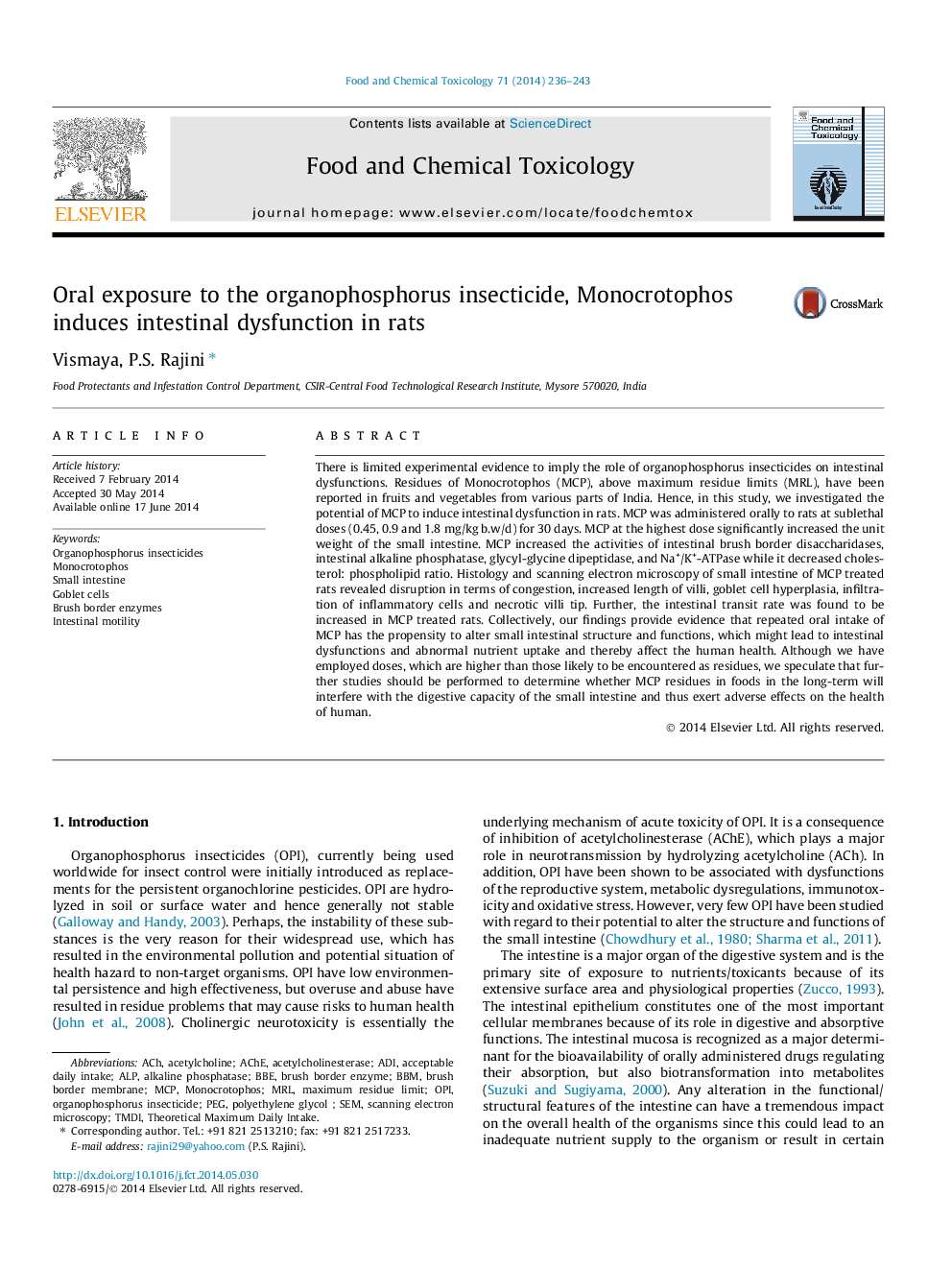| Article ID | Journal | Published Year | Pages | File Type |
|---|---|---|---|---|
| 5850126 | Food and Chemical Toxicology | 2014 | 8 Pages |
â¢Monocrotophos significantly increased the activities of intestinal brush border disaccharidases.â¢Monocrotophos elevated intestinal alkaline phosphatase, glycyl-glycine dipeptidase and Na+/K+-ATPase activities.â¢Monocrotophos decreased the cholesterol: phospholipid ratio in the brush border membrane to a significant extent.â¢Monocrotophos disrupted the ultra structure of the jejunum.â¢The intestinal transit rate was increased in Monocrotophos treated rats.
There is limited experimental evidence to imply the role of organophosphorus insecticides on intestinal dysfunctions. Residues of Monocrotophos (MCP), above maximum residue limits (MRL), have been reported in fruits and vegetables from various parts of India. Hence, in this study, we investigated the potential of MCP to induce intestinal dysfunction in rats. MCP was administered orally to rats at sublethal doses (0.45, 0.9 and 1.8 mg/kg b.w/d) for 30 days. MCP at the highest dose significantly increased the unit weight of the small intestine. MCP increased the activities of intestinal brush border disaccharidases, intestinal alkaline phosphatase, glycyl-glycine dipeptidase, and Na+/K+-ATPase while it decreased cholesterol: phospholipid ratio. Histology and scanning electron microscopy of small intestine of MCP treated rats revealed disruption in terms of congestion, increased length of villi, goblet cell hyperplasia, infiltration of inflammatory cells and necrotic villi tip. Further, the intestinal transit rate was found to be increased in MCP treated rats. Collectively, our findings provide evidence that repeated oral intake of MCP has the propensity to alter small intestinal structure and functions, which might lead to intestinal dysfunctions and abnormal nutrient uptake and thereby affect the human health. Although we have employed doses, which are higher than those likely to be encountered as residues, we speculate that further studies should be performed to determine whether MCP residues in foods in the long-term will interfere with the digestive capacity of the small intestine and thus exert adverse effects on the health of human.
